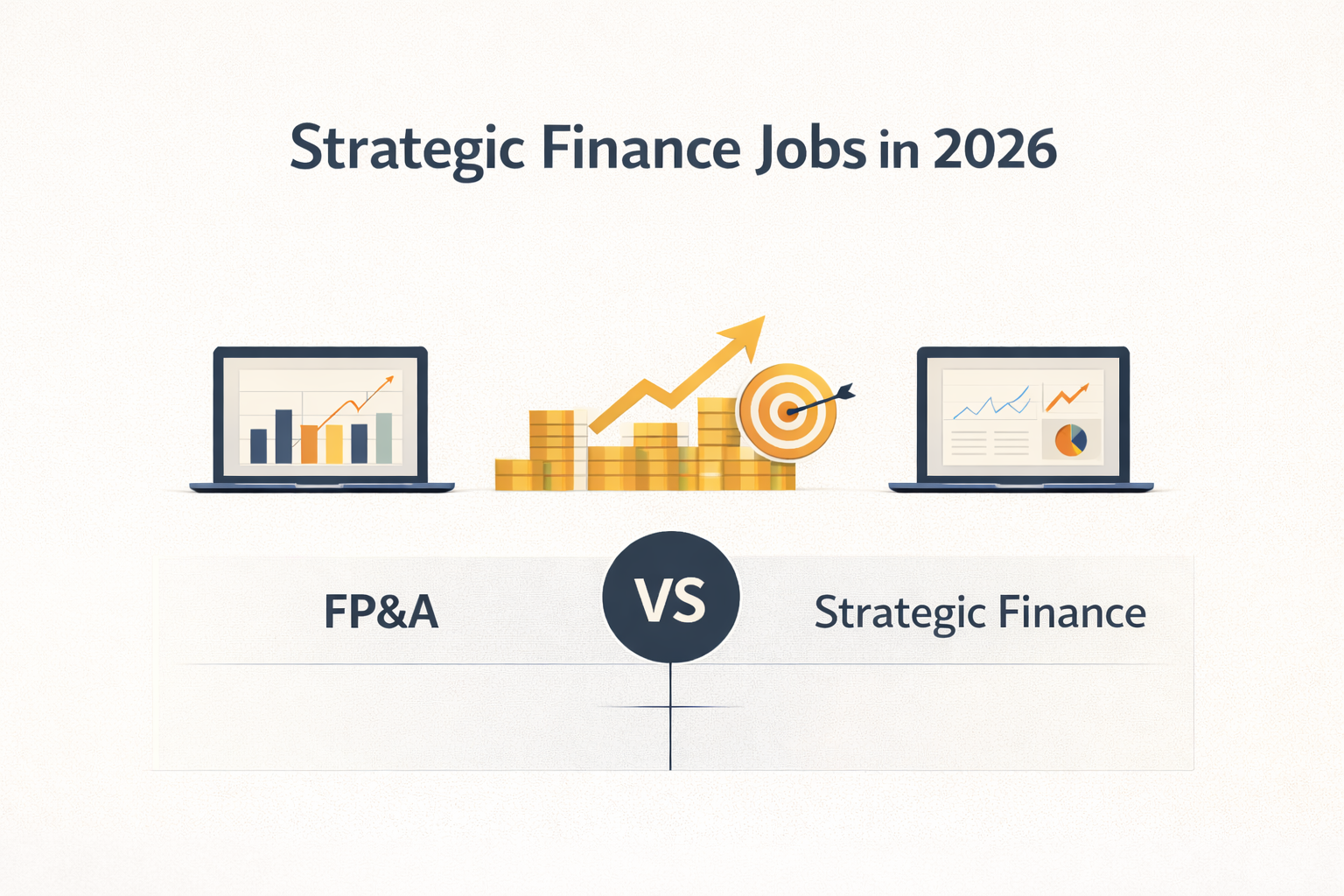Let’s imagine you're at your grandma’s house. She’s just baked your favorite cookies. You’re sipping tea together, and she looks at you lovingly and asks:
"So tell me again, what do you actually do for work?"
Now, this is a question you've probably answered a dozen times at dinner parties, networking events, maybe even awkward dates. But explaining it to your grandma — that’s the real challenge. She’s smart, but she didn’t grow up in a world of startups, forecasting models, or strategic finance frameworks. So you need to make it simple, meaningful, and grounded in something she can understand.
Let’s start there. Let’s explain what Strategic Finance is in a way that even your grandma — and frankly, anyone else — could grasp.
Think About Grandma's Bakery
Let’s say your grandma ran a small bakery. Every morning, she’d get up at 5 AM, knead dough, bake fresh bread, and open the doors to her regular customers by 7. She didn’t go to business school, but she knew how to make the numbers work. She knew which items had the best margins, which customers were loyal, and when it made sense to hire a new helper.
Now imagine she came to you and said, “Sweetheart, flour prices are going up, and I’m not sure if I can afford to keep making croissants. Should I raise prices? Should I drop them from the menu? Or should I try and get a better deal from the supplier?”
That’s where Strategic Finance comes in.
Strategic Finance is all about answering those types of questions — using numbers to make smart decisions about what a business should do next. It’s not just about keeping track of what happened last quarter. It’s about planning, modeling, and helping a company make better, smarter moves for the future.
Strategic Finance Is Decision-Making with Data
Most people think finance is just accounting or budgeting. But Strategic Finance is different. It’s forward-looking. It’s about using financial data to drive strategy.
Think of it this way. While an accountant tells you what happened — how much you spent last month or how much revenue came in — Strategic Finance asks:
- Should we spend more on marketing next quarter?
- Can we afford to open a new office in Asia?
- What happens if we lose our biggest client?
- Will our current pricing model still work in 12 months?
The job of Strategic Finance is to build models, run scenarios, and guide company leadership through uncertainty. It’s about answering “what if” questions with real numbers, not just guesses.
So What Do Strategic Finance People Actually Do?
Let’s walk through a week in the life of someone in Strategic Finance. At a typical startup or high-growth company, a Strategic Finance team might be:
- Building financial models to forecast how much revenue the company will make in the next 6 months
- Tracking customer acquisition costs to understand if marketing campaigns are working
- Analyzing unit economics — how much the company makes or loses for each customer
- Meeting with department heads to help them build their budgets for the year
- Preparing board presentations to explain performance and runway to investors
- Supporting fundraising by helping the CEO figure out how much capital to raise and when
- Running "what-if" analyses to test things like pricing changes, expansion plans, or new product launches
None of these activities are simply number crunching. They're about driving strategy and shaping how the business grows.
That’s why it’s called Strategic Finance. Because you’re not just counting — you’re guiding.
But Isn’t That Just What CFOs Do?
Yes — and no. Strategic Finance teams often sit underneath the CFO, but they’re not focused on tax filings, audits, or compliance.
Instead, they're the brains behind the financial planning process. They're the ones who translate what’s happening in the market into actions a company can take. They're deeply embedded with the product, marketing, operations, and leadership teams.
It’s not uncommon to hear Strategic Finance professionals say, “We’re business partners, not just number people.” And they mean it. They’re in the room when pricing strategies are debated, when hiring plans are shaped, and when long-term bets are made.
It’s the finance job that’s closest to the heart of the business.
Let’s Get Personal: A Real-World Example
Imagine your friend works at a company that delivers healthy meals to people’s homes. Business is growing fast, but margins are tight. Your friend is in Strategic Finance, and her week might look like this:
On Monday, she’s reviewing churn rates — how many customers are cancelling their subscriptions each month — and trying to figure out if offering a free dessert helps reduce cancellations.
On Tuesday, she’s working with the marketing team to assess whether ads on Instagram are driving better conversions than ads on Google. She builds a model to show customer acquisition cost by channel and makes a recommendation to shift more dollars to Instagram.
On Wednesday, she’s helping the CEO prepare slides for an investor update, including cash runway, key KPIs, and new growth initiatives.
On Thursday, she’s meeting with the operations team to analyze the cost of switching from plastic to biodegradable packaging, and how it would impact gross margins.
And on Friday, she’s helping run a scenario analysis to test the impact of launching in a new city.
That’s Strategic Finance in the real world. A constant mix of analysis, modeling, meetings, and high-stakes decisions — all grounded in numbers.
Why Strategic Finance Is So Popular Right Now
There was a time when the only finance roles people aspired to were investment banking, accounting, or maybe private equity. Strategic Finance wasn’t even a well-known term. But that’s changed — fast.
Today, companies from early-stage startups to public tech giants are investing heavily in Strategic Finance. Why?
Because growth is hard. Money is expensive. Investors demand real profitability. And the only way to operate in this new environment is to be strategically rigorous with every dollar you spend.
Gone are the days of “grow at all costs.” Today, companies are asking:
- Do we understand our unit economics?
- Can we scale sustainably?
- What’s our burn multiple?
- How do we hit profitability without stalling growth?
And the people answering those questions — they’re not consultants or bankers. They’re the Strategic Finance team.
Why More Professionals Are Choosing Strategic Finance Courses Over MBAs
Let’s say you’re in your late 20s or early 30s. You’ve been in consulting or accounting or even marketing. You’re good with numbers, but you want to get closer to the action — to help make decisions, not just report on them.
You could go back to school, spend $200,000, and get an MBA. But that takes two years, and the curriculum often lacks practical, hands-on finance experience.
So instead, many professionals are now turning to focused, real-world Strategic Finance courses.
These courses teach you exactly what you need to break into the field — like:
- How to build operating models
- How to forecast revenue and expenses
- How to analyze CAC, LTV, and payback periods
- How to use SQL and dashboards to pull product data
- How to present recommendations to C-suite leaders
These aren’t theory-heavy. They’re built by people who’ve worked in Strategic Finance roles and know what companies are actually looking for.
Who Should Consider Strategic Finance?
If you’re someone who:
- Likes solving real business problems
- Enjoys working with numbers, but doesn’t want to be stuck in a spreadsheet all day
- Wants to be part of strategic conversations
- Is comfortable learning financial concepts and thinking critically
…then Strategic Finance might be the perfect fit.
It’s a field that rewards curiosity, analytical thinking, and business judgment. And it doesn’t require a CFA, CPA, or MBA to get in — just the right mix of skills, hustle, and applied learning.
How to Talk About Strategic Finance at a Family Gathering
Let’s bring it back to that moment with grandma. You’ve explained what you do. You’ve given her a few examples. But she’s still a little unsure.
So here’s how you might explain it to her, once and for all:
“Grandma, you remember how you used to run your bakery, and you always had to figure out how much to order, how much to charge, and when to hire someone new? I do that — but at a company that’s a bit bigger. And I use spreadsheets instead of a notebook.”
That usually earns a nod, maybe even a smile. Because she gets it. Strategic Finance isn’t mysterious. It’s just running a business well — but with data, models, and strategic judgment.
Final Thoughts: Why Strategic Finance Is the Future
We live in a world where decisions have to be made faster than ever. Markets shift. Customer behavior evolves. Cash is no longer cheap.
In this world, companies can’t afford to fly blind. They need people who understand the business and the numbers — and who can connect the two to help leadership make smarter decisions.
That’s Strategic Finance.
It’s one of the most impactful, dynamic, and intellectually rewarding roles in business today. And unlike other finance roles that are focused on deals or compliance, Strategic Finance sits in the middle of the action — helping companies navigate growth, risk, and opportunity.
So whether you're a college grad wondering what finance path to take, or someone looking to pivot from accounting, ops, or marketing into something more strategic, Strategic Finance is a path worth considering.
And the next time someone asks you, “What is Strategic Finance?” — just smile, and say:
“I help companies make better decisions using numbers. It’s part strategy, part modeling, part storytelling — and it’s the most fun I’ve ever had.”






.png)

